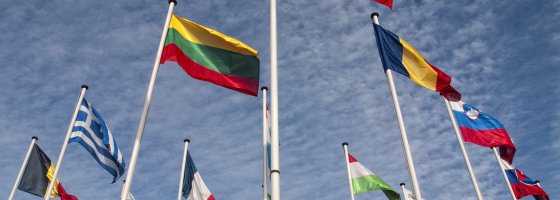Blog post
Fifty years of the Common Agricultural Policy
The ninth of May is Europe Day, celebrating the creation of the European Union. This year the EU is celebrating the 50th anniversary of the first common organisation of the market - for grain - in what was then the European Economic Community (EEC). This was a milestone for the six member states, because it brought about the first genuine economic cooperation. The goal of the organisation of the market was simple: to keep the grain price on the common market above a certain level. After the organisation of the grain market, other products soon followed, like wine, sugar, and beef.

Forerunner of the economic integration of the EU
The market organisations followed the principle of unified price and market: a farmer received the same price (expressed in a fictitious currency) for a given product everywhere in the EU. That can only work if exchange rates are stable; exchange differences result in internal price differences, which become problematic if they become too extreme. Because there was no unified European monetary policy and because of the different economic situations in the EU member states, the exchange rates did diverge widely. A complicated system was set up to compensate for this. This system was not eliminated until 1993 with the establishment of the internal market. It's not hard to make comparisons with the current euro crisis.
A unified market means that products can be freely transported between the member states. This principle paved the way for the dismantling of national regulations which inhibited the free transport of goods within Europe, such as the German Purity Law. The unified market has benefited Dutch agriculture, in which export is important. In 2012, 80% of Dutch agricultural exports were sold to the internal market and its more than 500 million consumers. These sales are not disturbed by differences in exchange rates or laws, or politically motivated obstructions, something which certain countries to the far east have to deal with on a regular basis.
Grains and godwits
But as for the market organisations, their success ended up being their downfall. Just think of the butter mountains and wine lakes. The goals have also slowly shifted over the past twenty years. In 2012, it is not just food supplies that are important, but also the role of farmers in nature and landscape management. The EU requires agricultural nature and landscape management in the Netherlands, and also helps pay for it by means of the agricultural policy.
There are arguments in favour of "less Europe" in the face of the current crisis. For the agricultural sector, this would be a step backwards if it meant that the achievements of the current EU would be lost. The same can probably be said for the godwit and other native birds. That means there's plenty to celebrate, even if the celebrations are modest in view of the crisis.